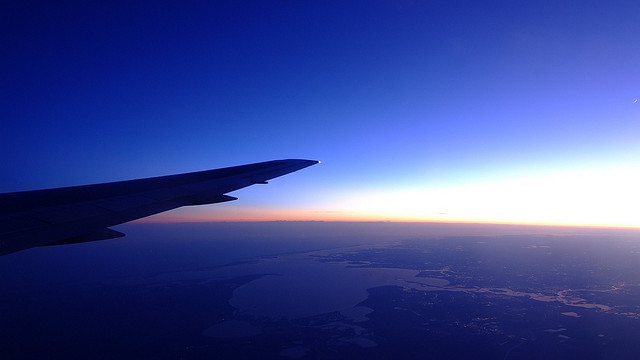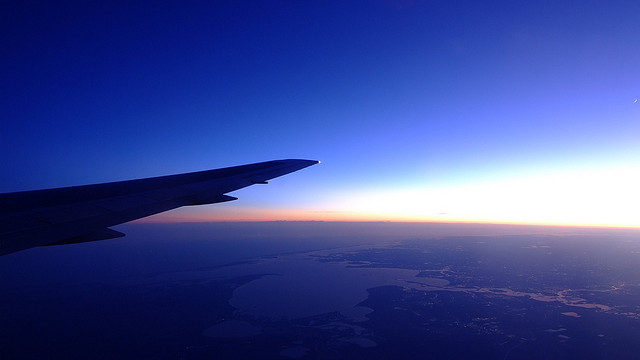By STEVEN MOORE

1.
After training in Mississippi we flew to the southern part of California and trained for two more weeks in the desert. After the desert it was time to move again. In Maine, middle-aged women and their kids waved flags along the ramp leading from the skyway to the terminal. They were cheering. Shaking all our hands as we moved down the ramp. There were kids, too, and the kids seemed less sure of what was happening. Like they knew that we hadn’t done anything yet to deserve this and they were confused about the cause of the praise, like I was. Or they knew exactly where we were going. And they were confused about the cause of the praise. When the refueling of our plane was completed we shook their hands again on the way out.
2.
There was a line to use the toilet in Bulgaria. This part of the terminal had only one toilet and none of the guys could figure out how to flush it, but also nobody took the trouble to warn the next guy that flushing the toilet was a very counterintuitive procedure—the button was not actually even on the toilet itself, but way up on the wall above eye-level—so each guy had to figure it out anew, self-conscious about the time he was taking while doing so, and maybe from the embarrassment of having to figure it out and how long it took, he decided to not warn the next guy, and besides he himself had not been warned, so there was a long line.
The plane landed in Germany. There was a special terminal built for the arrival of planes of soldiers. The padded benches were compatible with sleeping. Stickers on the stalls of the latrine represented the units who’d passed through before—a hundred battalions and their mottos and their philosophies toward combat. Everyone thought themselves the heart of the war. Everyone was getting it done. Silhouetted horses were an especially popular mascot. We took off. It was raining as we came off the plane. Nobody knew what country it was. We collected sheets and blankets from a little booth with an awning where two dozen Marines were also in line to collect sheets and blankets—they stood in a more disciplined line than we did—and we waited and filed through and carried the bedding into the rain to a conditioned tent that was dim and damp inside. It turned out that the name of this country also ended in stan, as if to help us transition. It was that part of the world now. On another night—maybe one night or two nights later—someone woke us and told us it was time to go. There was another plane.
3.
The back ramp of the plane opened into daylight. It seemed like it hadn’t been daytime for a long while, but here it was. It was huge and blinding and guys went reaching for their sunglasses. A crewman on the ground motioned for us to follow him, single file again. We took instruction eagerly. Shuffled off the plane. And on the horizon, straight ahead of us as we came off the ramp, were the tremendous mountains of Afghanistan.
In Bagram we re-zeroed our rifles since the change in altitude would affect the flight of our bullets. We spent five days there, then took a C-130 to Jalalabad in the middle of the night. It was always the middle of the night. It was never almost morning. In Jalalabad we were hustled to an empty field where helicopters landed nearby using only blackout optics so that to us they were completely invisible in the darkness. We knew these helicopters were meant for us because they were accompanied with extra shouting. The helicopters were the size of city buses, but without windows. Interiors of bewildering machinery. There was not time during the ride to fall asleep again. Both helicopters set down on a concrete pad and as soon as the ramp descended guys were climbing aboard and hauling our bags off, and it wasn’t important which bag to haul away so long as you were helping. Strangers were yelling Go up past the castle,and pointing. So we took all the bags up a paved road, followed more pointing, and piled them on a concrete landing with basketball hoops on each end. Halogen light shone over the court and a formation was conducted for accountability. Adjacent to the court was a low structure made of stone, with short towers on the corners and parapets atop the walls. It did not seem strange.
Steven Moore’s work has previously appeared in the North American Review, the Southeast Review, and DIAGRAM, among others.
Photo by Flickr Creative Commons user Jun Seita




